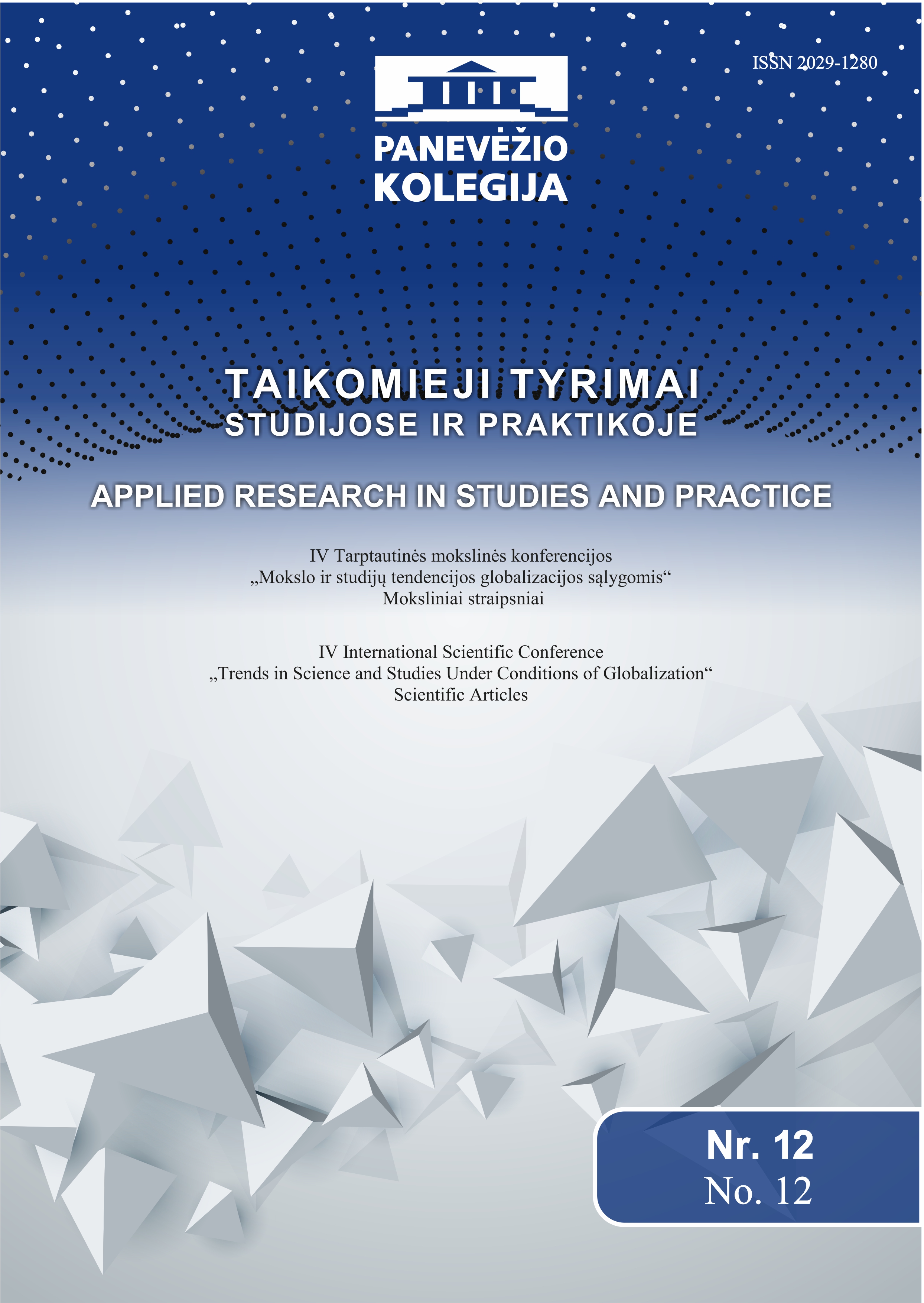Specialių žinių panaudojimo įrodinėjimo procese formų ypatumai Lietuvos ir Rusijos teisėje: kai kurie probleminiai aspektai
The Peculiarities of Forms of Special Knowledge Application in the Process of Giving Evidence in Lithuanian and Russian Law: Some Problematic Issues
Author(s): Sigita ŠimbelytėSubject(s): Education, Law, Constitution, Jurisprudence, Criminal Law
Published by: Panevėžio kolegija
Keywords: Special knowledge;private expert;non-judicial expertise;criminal proceedings;proof process;
Summary/Abstract: This article analyses the problematic aspects related with the forms of special knowledge application in the criminal process of giving evidence in Lithuanian and Russian legal systems, that are not popular in such procedure as expert or specialist examinations in order to evaluate the possible limits of this legal institute of criminal procedure law. Moreover, the statistics data shows a tendency, that nowadays the crimes are more considered and qualified that use more advance technologies, so this makes examine the all measure used in fighting with this negative phenomena, including the special knowledge usage forms in criminal proceedings. So, the main purpose of this article is to reveal the private expert and non-judicial expert examination as some of problematic issues of the model of special knowledge application in Lithuania in the criminal process of giving evidence in comparison with the practice of Russian legal system. This illustrates the positive possible influence of globalisation processes on Russian and Lithuanian criminal procedure law, that can help to solve some important problems by using national legal regulation practice of each other countries. So, there is analysis of legal doctrine, legal regulation and case law of both of these countries set in order to identify existing situation, main specifics and problematic issues of the private expert and non-judicial expert examination in these national legal systems. This study has been carried out by using various research methods: a synthesis method, a comparative legal analysis, a system, linguistic, historical, logical analyses methods as well as a legal document analysis method. Moreover, a special attention has been paid to draw some possible solutions to existing problems of this legal institute of criminal procedure law by using national legal regulation practice of each other countries. The analysis of this article reveals the hot discussions between the scientists of different positions regarding the recognition of private expert institute in these national legal systems, i.e. despite the issues of such recognition (the establishment of necessary parallel investigation, the declining objectivity of private expert conclusions etc.), there are much more significant advantages on this question by providing a significant measure for to defence party in the criminal process of giving evidence or making the prosecution and defence parties more independent form each other and equal. The results of the analysis of this articles shows that Russian legislator is quite conservative in terms of recognition of private expert, because Russian legal acts do not provide special legal regulation for this subjects of criminal proceedings. Meanwhile in Lithuanian legal system, there are some important changes on this issue, because the law on forensic examination defines private expert in the same way as the official judicial expert, but with some differences related with his working place in non-state forensic examination institution and less formal relations with the clients in no accordance with the criminal proceedings regulation. Moreover, Lithuanian case law recognises private expert conclusions as evidence, requires to accept them and strengthens their position in process of giving evidence, but this evidence is defined as being only the consultative type conclusion. So, considering such formal type differences between this forms of special knowledge application and a positive influence of its recognition, Lithuanian legislator shall be criticised for its lack of determination as it does not provide this form of special knowledge application with the adequate validity as in case of judicial expert by forming some kind of discriminatory situation. Moreover, legal doctrine provides a waste variety of possible measures to eliminate negative consequences of private expert recognition by highlighting the establishment of ethical codes for private experts, the strict and direct control of private activity set to state forensic institution, providing a strict duty to ground their competence and used examination methods in criminal proceedings and etc. Finally, there is an objective need to extend an unreasonably limited scope of the concept of forensic examinations in the field of non-judicial examinations that is regulated by departmental legislation, considering the fact that these examinations are carried out by competent public institutions. There are many cases of non-judicial examinations in Lithuanian legal regulation, which examination conclusions cannot be defined as being the judicial one, because of the formal basics – the non-adherence of legal procedure of appointing expert examination in criminal proceedings, or the execution of such examination by institution outside the scope of system of judicial examination institutions. Hoverer, the legislators of above-mentioned countries do not solve this issue in legal regulation.
Journal: Taikomieji tyrimai studijose ir praktikoje
- Issue Year: 12/2016
- Issue No: 1
- Page Range: 73-82
- Page Count: 10
- Language: Lithuanian

